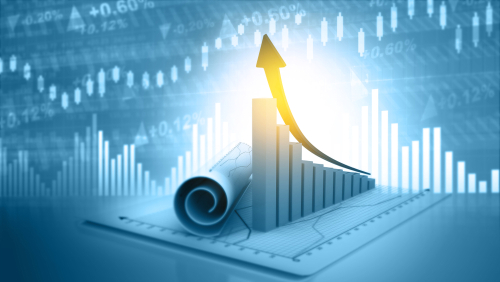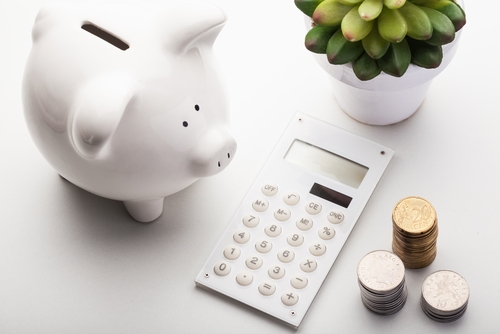How are Finance and Economics Related?

Individuals who are intrigued by money and have a keen interest in buying and selling often wonder whether finance and economics are related and, if so, how so. They also wonder what type of careers these two fields offer. Although economics and finance have many similarities, they are actually two very different fields. One thing economics and finance has in common is that they both are fields that offer many job opportunities and some excellent wages.
What is Economics?
Economics deals with how goods and services are produced, distributed and consumed by the public. Economics is a social science that also includes microeconomics and macroeconomics. Microeconomics studies smaller economic units like consumers, shoppers, savers, workers, and markets.
A Closer Look at Economics
Economics is a “study.” It involves research into the financial “pulse” of an industry or even a country. Just as the human pulse is affected by stress or increased activity, the economic pulse , measured in part by the gross domestic production figure, is affected by government policies and regulations, trends in domestic and international financial markets, predictions of social unrest, taxes and other issues. Economists study and analyze these things to provide a structural base for sound financial decisions.
An example of this can be found in a recent Bloomberg article about the high gross national product figures the US government is releasing. The numbers show a 32 percent growth, which is the largest ever recorded. While a first look at these figures could give someone the confidence to invest broadly, Bloomberg explains that much of the increase is based upon reopening of businesses after pandemic restrictions. While the overall picture is somewhat encouraging, investors must take into consideration things like COVID-19 spikes and a high unemployment rate, including workers who have stopped looking for jobs.
Economists make that, and other information available to those involved in finance so that they can use it to map out their strategies. In effect, economists develop theories and assessments so that finance professionals can apply them.
Duties of Economists
Economists often advise stakeholders such as individuals or even countries about their investments. They also gather data from many sources such as research methodologies, samplings and surveys. From that data they make forecasts of economic trends. Then, they analyze the trends to see if economic strategies should change to adapt to the trends and if so, how. The economist then writes reports for the client and may also make presentations to management groups. Most economists see themselves as either microeconomists or macroeconomists.
Macroeconomics

According to an explanation from the International Monetary Fund, macroeconomics generally concerns itself with nations. Markets in a nation work together to build “aggregate variables,” or independent factors within industries that combine to form an economic picture. Some of these variables are governmental regulations and even the interaction of international corporations.
Microeconomics
Microeconomics looks at one industry or even one corporation. The focus is on how supply and demand create something called “equilibrium.” That is a theory that in a perfect market the demand for goods or services determines the supply or production of those things. They will “balance out” creating a state of equilibrium.
Equilibrium
Therefore, economists believed that markets were all either in a state of equilibrium or returning to that state. Until 1929, that explanation seemed perfectly valid. Then something happened that wrinkled the economic fabric: The Great Depression. Economists could not explain why it happened. One man, John Keynes, formulated a theory that looked at equilibrium through three factors: goods, labor and finance. He also introduced the term “disequilibrium” which studied departure from the normal state.
Macroeconomics involves the larger economy and deals with things like economic growth, national income and inflation. Most finance professionals study economics and have a good knowledge of how economics work and how it can play a part in financial decisions.
How They Work Together
A lot of the research and analysis done in economics focuses on issues in microeconomics. These are things like fair wages, price supports and tariffs. These, however, are also the elements ( though on a larger scale) of macroeconomics. Additionally, many companies that are the focus of a microeconomic study have international components. So, economists have recently been attempting to produce models of macroeconomic trends by putting together data from many single businesses or even from units as small as individual families.
What is Finance?

Finance deals with how the money used to buy the above goods and services is originated and managed. As a specialized branch of economics, finance deals with credit, money, banking and investments. Finance may include specialized areas of study within finance such as:
- Personal finance – How an individual handles his money in a bank, checking or savings account
- Financial institutions – The study of banks and lending institutions that borrow their funds to customers
- Risk management – This involves how businesses and individuals limit their risk of loss due to volatility of financial funds and the constantly changing market.
- Corporate finance – This deals with how firms and businesses raise money from investors, invest that money and return the profits back to the investors.
How are Economics and Finance Related?
When we hear the word economics, we generally think of money. Yet, when we hear the word finance, we also think of money. Does this mean economics and finance are the same things? They may not be the same, but they are very similar because they both deal with the same thing: goods and services. Finance is actually a specific branch of economics.
A Closer Look at Finance
Many sources see economics and finance as “ two sides of a coin.” While economists are striving to understand macroeconomics by studying the smaller aspects of microeconomics, finance professionals will not succeed without a grasp of economics. Economics analyzes supply and demand equilibrium, data such as average cost and marginal cost and other concepts. Finance applies these analyses to real-world industries.
Main Roles of Finance Professionals

Although there are many specialties in finance, the first, and most important, general role of this professional is the procurement of funds. Whether that is through investment return or the stock market, bank loans or offering public stock options, all projects begin with capital. The second duty, or role is to find and procure a business and then to guide investments. If and when there are profits, the finance professional decides how to distribute them and what portion will be reinvested in the business. Professionals in finance also write reports to management.
Finance professions, in all of their forms, are undergoing a huge transformation due to the explosion in financial data. Professionals are being required to learn many new skills that are technology related. There have been enormous advances in technological tools including artificial intelligence that allow these professionals to spend less time in fact-checking and auditing and more in creating and managing new projects. An article in Financial Management says that the finance profession was “staffed by people who were trained for and expected to be driving a car, and, for most of the time, looking in the rear view mirror and making sure everything they saw was accurate, transparent and correct.” Instead, the magazine asserts, people need to be trained to look ahead and to see what is coming up. Additionally, finance professionals are increasingly expected to develop new strategies in a sometimes-gloomy economy. This means that degree programs should be updated and current to offer the maximum benefit to students.
An example of the relationship between economics and finance can be found in the car buying process. A consumer will look at different cars, read the reviews, ask for others’ opinions and even take it for a test drive. However, they don’t really know which car would best suit their needs. This decision-making process is economics. The actual execution or purchasing is where finance steps in. While they may work together, economics and finance are two separate things.
MBA vs. Master’s in Finance or Economics
The professions of economist and financial professional overlap. Does that mean the degrees do as well, and can an MBA prepare students for either profession? The answer to that question is “yes,” and “no.” Yes, both professions can be attained through an MBA degree. The MBA program is a broad business study that includes many aspects, and some employers see that as an advantage. The MBA degree, however, is more expensive.
Careers in finance and economics both begin with bachelor’s programs. There are undergraduate degrees in both disciplines as well as combined degrees. The bachelor’s programs have some course areas in common like business fundamentals, global business, statistics and mathematics. They both include technology courses, and undergraduate finance degrees will include economics theory while economics degrees include courses in areas like taxation and accounting that might be considered finance specializations.
Students who take the broad MBA path will have courses in both finance and economics as well. Students earning Master’s in Finance or Master’s in Economics degrees will take courses with a narrower focus.
There is a benefit in the specialized degrees. They allow students to align their studies with their specific career goals. The Master of Science in Economics is heavy on econometrics. That means people who want to work in the research and programming aspects of economics will benefit from the emphasis on quantitative analysis and critical thinking the degree supplies. Someone interested in an economics career in policy-making can include more communications and ethics courses. The Master of Science in Finance usually offers several tracks that, in turn, feature specializations. For instance, students may be able to earn an MS in Finance in an international business track with a specialization in corporate finance.
After Earning a Degree
Both economists and finance professionals benefit from certification. Once a student earns a degree, he or she will likely be interested in becoming certified. Certification adds credibility to a resume and shows competency in the field. While earning the credential is voluntary, it is sometimes necessary for employment and also for licensure.
There are literally hundreds of certifications for finance professionals. Accountants can earn the Certified Public Account credential (CPA) , Certified Management Accountant (CMA), Certified Financial Examiner (CFE), Certified Internal Auditor(CIA), Certified Information Systems Auditor (CISA) and others. There are credentials for investment advisors and funds managers as well as risk assessors and financial planners.
Far fewer credentials are appropriate for economists. The major certification in the US is the Certification in Applied Economics and Data Analytics. It is awarded by the National Association for Business Economics. There are also international certifications. For instance, the University of London awards the Postgraduate Certificate in Economic Policy.
In general, the certifications of both professional arenas require favorable completion of mandated curriculum in the graduate programs, work experience, ethics courses and passing a comprehensive examination.
What Careers Are Available in Finance and Economics?
Another thing that economics and finance both have in common is that they both offer various career opportunities. Many finance careers coincide with economic majors and vice versa. For instance, a candidate can pursue a career as a financial analyst, a financial planner or a research market analyst with either a degree in finance or a degree in economics. Here are some careers possible with degrees in finance or economics along with possible wages as reported by the U.S. Bureau of Labor Statistics (BLS).
- Market Research Analyst – $71,450
- Actuary – $114,850
- Financial Planner – $121,770
- Accountant – $78,820
- Credit Analyst – $82,300
- Budget Analyst – $79,830
- Compensation and Benefits Manager – $132,860
Additionally, students may decide upon dual majors which open different employment fields. As an example, a student who earns a JD (which stands for Juris Doctor and is a doctoral law degree) and an MA or MS in Economics can practice business law. Someone who majors in a foreign language and in economics is well-positioned to work in governmental policy-making. There are even dual majors in finance and economics. While earning a second degree adds to the time it takes to get an education, and requires a lot of self-discipline, the rewards for the sacrifice may include increased career satisfaction and higher income. That dual JD/MA in Economics degree boosts earning potential to a median salary of $122,960, according to the BLS, and the highest 10 percent of lawyers earn more than $200,000.
With the economy growing as it has in recent years, more individuals are choosing careers in finance or economics because they realize that many of these jobs have the potential to have good job growth. Working in finance and economics is not only a way to work in a growing field but also to help others make the most of their money and financial status.
Related Resources:
- 5 Benefits of a Finance Degree with a Minor in Economics
- What is a Master of Economics Degree?
- What is a Master of Financial Economics Degree?
- What is the Difference Between a Master’s in Finance and a Master’s in Economics?
- 20 Most Affordable Online Finance Bachelor’s Options
- 30 Scholarships for Finance Majors
- The Top 30 Best Master of Finance Degree Programs
- Top 10 Affordable Master’s in Finance Online Degree Programs
- 50 Best Online Master of Finance Degree Programs
- Top 50 Most Affordable Online MBA in Finance Degree Programs
